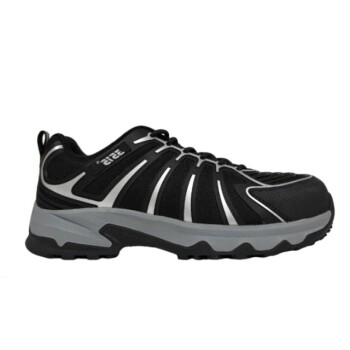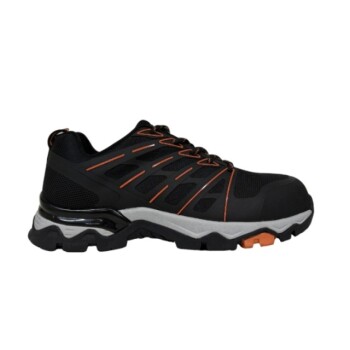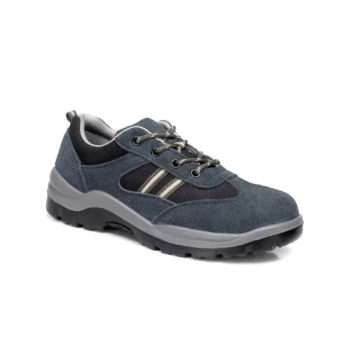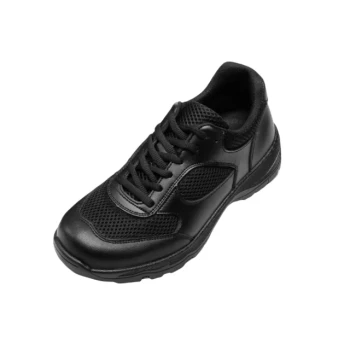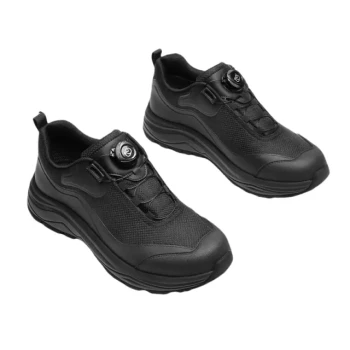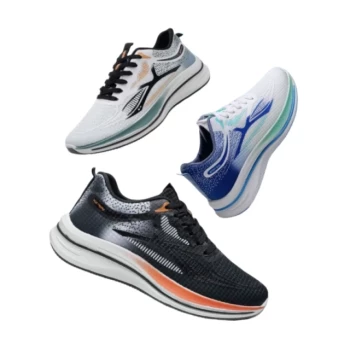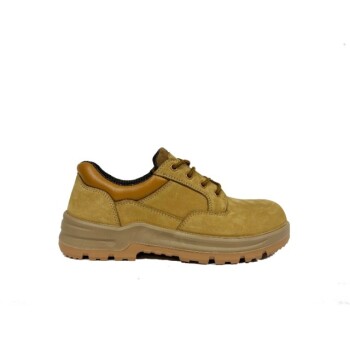At their core, the primary limitations of aluminum toe caps are their reduced durability compared to steel and the fact that they still trigger metal detectors. While significantly lighter than steel, they may dent or crack under the same extreme pressures that steel can withstand.
The central takeaway is that aluminum toe caps represent a compromise. They offer a significant weight reduction over steel, but they do not provide steel's ultimate durability, nor do they offer the non-metallic benefits of a composite toe.
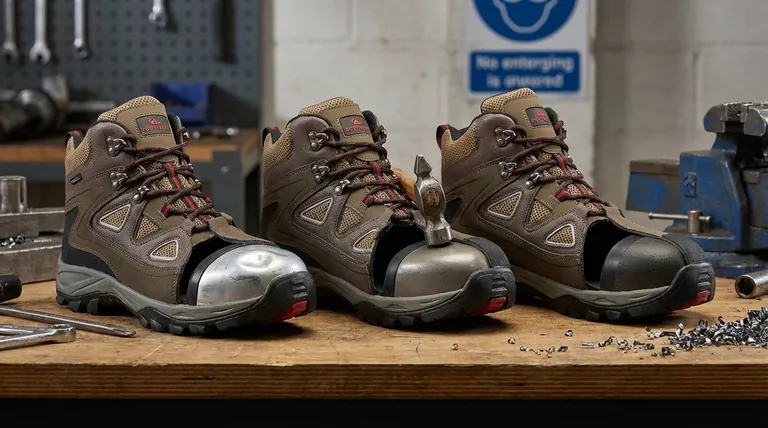
The Core Limitations of Aluminum Toe Caps
Understanding the specific drawbacks of aluminum is crucial for selecting the right safety footwear for your environment.
Durability and Impact Resistance
Aluminum is a strong material, but it is not as robust as steel. Under extreme, high-pressure impact or repeated blows, an aluminum toe cap is more likely to dent or crack than a steel one.
This makes it a suitable choice for many jobs but potentially less ideal for the most demanding heavy industrial environments where the risk of crushing is at its absolute highest.
Metal Detection Interference
Because aluminum is a metal, it will be detected by security metal detectors. This is a critical limitation for workers in secure facilities, such as airports, government buildings, or power plants, who must pass through security checkpoints regularly.
In these scenarios, aluminum offers no advantage over steel, as both would require removal of the footwear.
How Aluminum Compares to Other Materials
To fully grasp its limitations, you must see how aluminum fits between the two other main options: traditional steel and modern composite materials.
Aluminum vs. Steel
The primary advantage of aluminum over steel is its lighter weight, which can significantly reduce foot fatigue over a long workday.
However, steel remains the standard for maximum impact and crush protection. Steel is also a better conductor of heat and cold, which can be a disadvantage in extreme temperatures, whereas aluminum's thermal conductivity is less of a factor.
Aluminum vs. Composite
Composite toe caps are made from non-metallic materials like carbon fiber, Kevlar, or plastic. Their key advantage is that they do not conduct electricity or trigger metal detectors.
The trade-off is that composite caps are often thicker and bulkier to achieve the same safety rating, and they may be more expensive. While strong, some composites may not offer the same level of protection as metal in the most extreme impact scenarios.
Understanding the Trade-offs
Choosing a toe cap is not about finding the "best" material, but the right material for the job. Each choice involves a specific set of compromises.
The Weight vs. Strength Balance
The most significant trade-off is between weight and ultimate strength. Aluminum strikes a balance by being much lighter than steel, but it gives up a degree of durability to achieve that.
The Metal vs. Non-Metal Divide
If your work environment involves metal detectors or electrical hazards, the choice is made for you. No metal toe cap, including aluminum or steel, is a practical option. You must choose composite.
Cost and Availability
Steel is the most common and generally the least expensive option. Composite materials can be the most expensive and may not be available in as wide a variety of footwear styles. Aluminum typically falls in the middle ground for both cost and availability.
Choosing the Right Toe Cap for Your Needs
Your specific work environment and daily tasks should be the deciding factor.
- If your primary focus is maximum impact protection in heavy industry: Steel remains the most proven and durable choice.
- If your primary focus is lightweight comfort for long hours on your feet (with no metal detectors): Aluminum is an excellent choice that reduces fatigue.
- If your primary focus is passing through metal detectors or avoiding electrical hazards: Composite is the only suitable and safe option.
Ultimately, understanding these limitations empowers you to select safety footwear that truly serves your specific needs.
Summary Table:
| Limitation | Key Detail |
|---|---|
| Durability | Less impact-resistant than steel; can dent or crack under extreme pressure. |
| Metal Detection | Triggers metal detectors, unsuitable for secure facilities like airports. |
| Comparison to Steel | Lighter weight but offers less ultimate crush protection. |
| Comparison to Composite | Conducts electricity; does not offer the non-metallic benefits of composites. |
Need Safety Footwear Tailored to Your Specific Job Requirements?
As a large-scale manufacturer, 3515 produces a comprehensive range of safety footwear for distributors, brand owners, and bulk clients. Whether your priority is the maximum protection of steel, the lightweight comfort of aluminum, or the non-metallic security of composite toes, we have the production capabilities to meet your exact needs.
Contact our experts today to discuss your requirements and get a quote!
Visual Guide
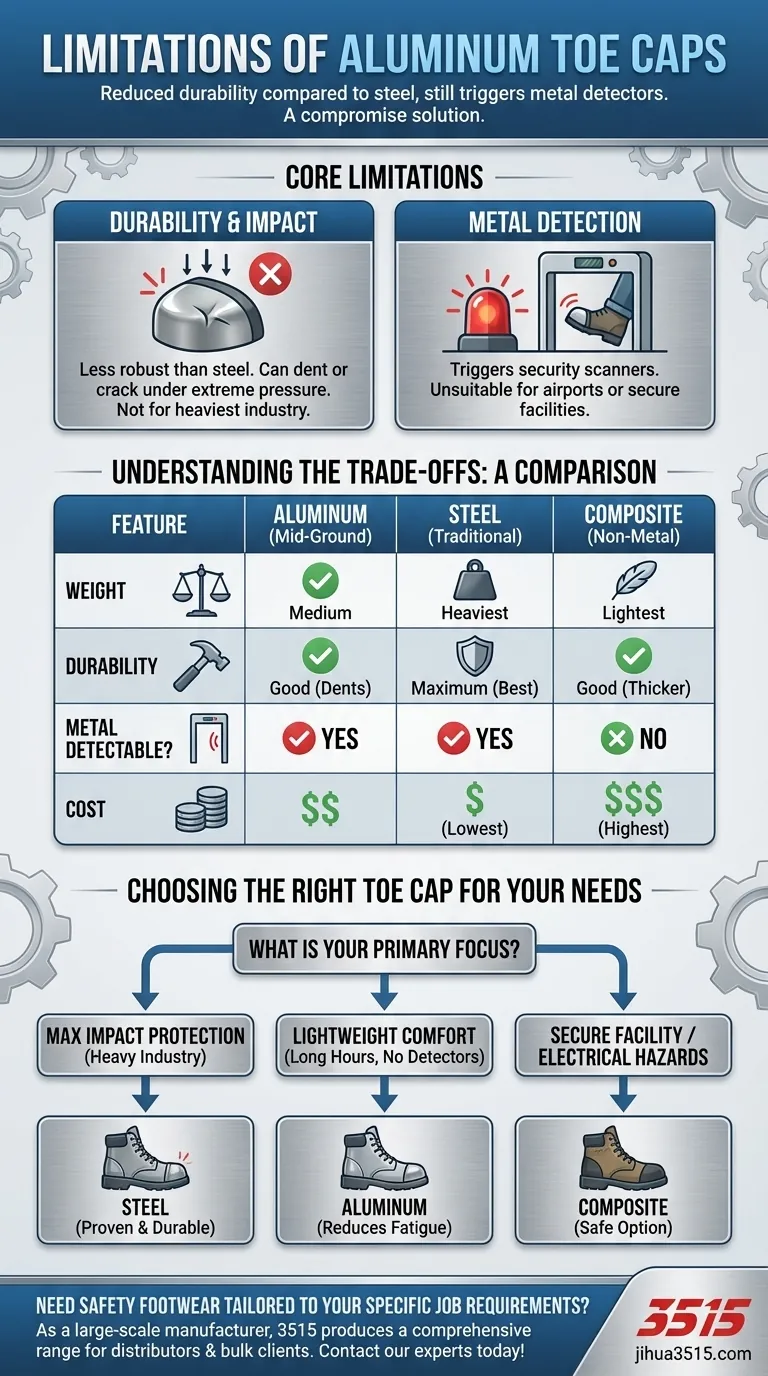
Related Products
- Safety Footwear Wholesale Manufacturer for Custom OEM/ODM Production
- Premium KPU Athletic Safety Shoes for Wholesale
- Premium KPU Injection Athletic Style Safety Shoes
- Wholesale Safety Footwear Manufacturer for Bulk & Custom OEM Orders
- Wholesale Leather Safety Boots with Customizable Protective Toe
People Also Ask
- How long can you wear safety boots? The Lifespan is Determined by Wear, Not Time
- How do safety shoes contribute to cost savings for companies? A Strategic Investment in Risk and Cost Management
- What do heavy duty boots do? Protect Your Feet in Demanding Work Environments
- Is safety-toe as good as steel toe? Choose the Right Protection for Your Job
- What are the differences between steel toe, composite toe, and alloy toe Wellington boots? Choose the Right Safety Toe for Your Job

